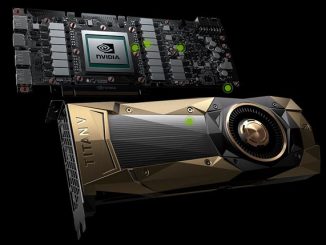- Intel’s (INTC) shares rose 2.60% to $20.25 in premarket trading, as it nears a deal to sell a majority stake in its Altera unit to Silver Lake for $9 billion, retaining a minority stake, per the Financial Times.
- The transaction, led by Silver Lake’s Ken Hao, supports Intel’s restructuring to fund advanced chip fabrication, amid talks with the Trump administration and a partnership with Taiwan Semiconductor Manufacturing Company.
- Intel’s strategic overhaul, including spinning off Intel Capital and replacing CEO Pat Gelsinger with Lip-Bu Tan, aims to address financial losses and competition from Nvidia and AMD in the AI chip market.

Intel’s (INTC) strategic maneuvers to regain its footing in the semiconductor industry are gaining momentum, with its shares climbing 2.60% to $20.25 in premarket trading on Monday. As reported by the Financial Times, the chipmaker is nearing a pivotal deal to sell a majority stake in its Altera unit, which specializes in programmable chips tailored for AI applications, to private equity firm Silver Lake at a valuation of approximately $9 billion. This transaction, led by Silver Lake’s chair Ken Hao – a seasoned investor with a track record of transformative semiconductor deals, including the creation of Broadcom’s predecessor from Hewlett-Packard’s assets two decades ago – marks a critical step in Intel’s broader restructuring efforts. Intel, which acquired Altera for $17 billion in 2015, will retain a significant minority stake, signaling a calculated approach to divest non-core assets while preserving influence over Altera’s future growth in the AI-driven chip market.
The Altera deal aligns with Intel’s urgent need to bolster its finances and redirect capital toward advanced chip fabrication facilities in the U.S. and Europe, a priority intensified by its role as the only American chipmaker capable of producing high-end chips. This capability has drawn attention from the Trump administration, which is exploring ways to revitalize Intel, including potential partnerships with industry leader Taiwan Semiconductor Manufacturing Company (TSM). Intel’s financial challenges, exacerbated by a multibillion-dollar loss in its foundry business, prompted drastic measures last summer, including thousands of job cuts and the suspension of manufacturing projects in Europe. The company’s restructuring gained further urgency in December when its board replaced CEO Pat Gelsinger with veteran investor Lip-Bu Tan, citing the need for faster progress to close the gap with rivals like Nvidia (NVDA) and Advanced Micro Devices (AMD).
Intel’s broader divestiture strategy also includes spinning off Intel Capital, its venture capital arm, in January, as it seeks to streamline operations and focus on core manufacturing capabilities. The negotiations with Silver Lake, which began earlier this year after Intel recognized the firm’s viable plan to enhance Altera’s value, are progressing toward an announcement in the coming days, though the deal remains subject to finalization. For Intel, a pioneer of Silicon Valley’s technological legacy, these moves reflect a delicate balance between shedding assets to fund innovation and maintaining strategic relevance in an industry increasingly dominated by AI and advanced computing demands. The outcome of these efforts will shape not only Intel’s trajectory but also the U.S.’s position in the global semiconductor landscape, amid heightened geopolitical and economic stakes.
WallStreetPit does not provide investment advice. All rights reserved.
- Bulenox: Get 45% to 91% OFF ... Use Discount Code: UNO
- Risk Our Money Not Yours | Get 50% to 90% OFF ... Use Discount Code: MMBVBKSM
Disclaimer: This page contains affiliate links. If you choose to make a purchase after clicking a link, we may receive a commission at no additional cost to you. Thank you for your support!




Leave a Reply